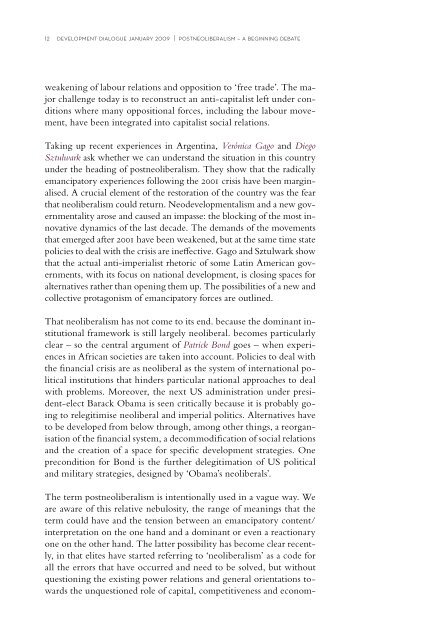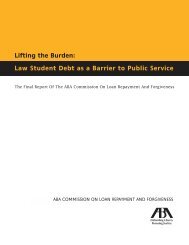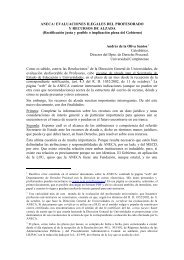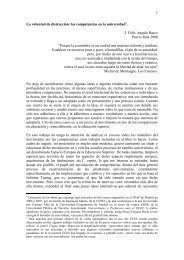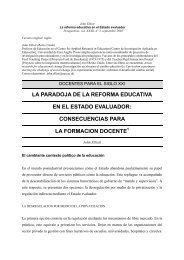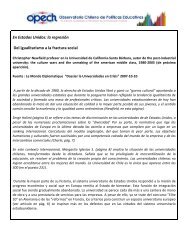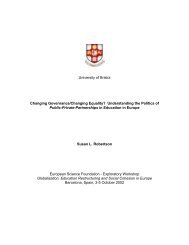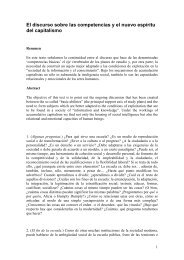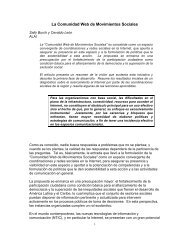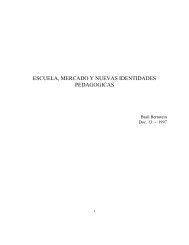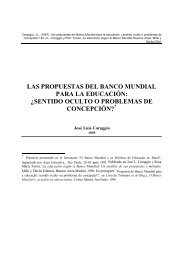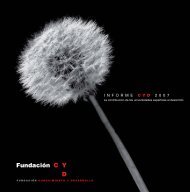no. 51 | january 2009
no. 51 | january 2009
no. 51 | january 2009
- No tags were found...
You also want an ePaper? Increase the reach of your titles
YUMPU automatically turns print PDFs into web optimized ePapers that Google loves.
12 development dialogue <strong>january</strong> <strong>2009</strong> | postneoliberalism – a beginning debateweakening of labour relations and opposition to ‘free trade’. The majorchallenge today is to reconstruct an anti-capitalist left under conditionswhere many oppositional forces, including the labour movement,have been integrated into capitalist social relations.Taking up recent experiences in Argentina, Verónica Gago and DiegoSztulwark ask whether we can understand the situation in this countryunder the heading of postneoliberalism. They show that the radicallyemancipatory experiences following the 2001 crisis have been marginalised.A crucial element of the restoration of the country was the fearthat neoliberalism could return. Neodevelopmentalism and a new governmentalityarose and caused an impasse: the blocking of the most in<strong>no</strong>vativedynamics of the last decade. The demands of the movementsthat emerged after 2001 have been weakened, but at the same time statepolicies to deal with the crisis are ineffective. Gago and Sztulwark showthat the actual anti-imperialist rhetoric of some Latin American governments,with its focus on national development, is closing spaces foralternatives rather than opening them up. The possibilities of a new andcollective protagonism of emancipatory forces are outlined.That neoliberalism has <strong>no</strong>t come to its end. because the dominant institutionalframework is still largely neoliberal. becomes particularlyclear – so the central argument of Patrick Bond goes – when experiencesin African societies are taken into account. Policies to deal withthe financial crisis are as neoliberal as the system of international politicalinstitutions that hinders particular national approaches to dealwith problems. Moreover, the next US administration under president-electBarack Obama is seen critically because it is probably goingto relegitimise neoliberal and imperial politics. Alternatives haveto be developed from below through, among other things, a reorganisatio<strong>no</strong>f the financial system, a decommodification of social relationsand the creation of a space for specific development strategies. Oneprecondition for Bond is the further delegitimation of US politicaland military strategies, designed by ‘Obama’s neoliberals’.The term postneoliberalism is intentionally used in a vague way. Weare aware of this relative nebulosity, the range of meanings that theterm could have and the tension between an emancipatory content/interpretation on the one hand and a dominant or even a reactionaryone on the other hand. The latter possibility has become clear recently,in that elites have started referring to ‘neoliberalism’ as a code forall the errors that have occurred and need to be solved, but withoutquestioning the existing power relations and general orientations towardsthe unquestioned role of capital, competitiveness and eco<strong>no</strong>m-


